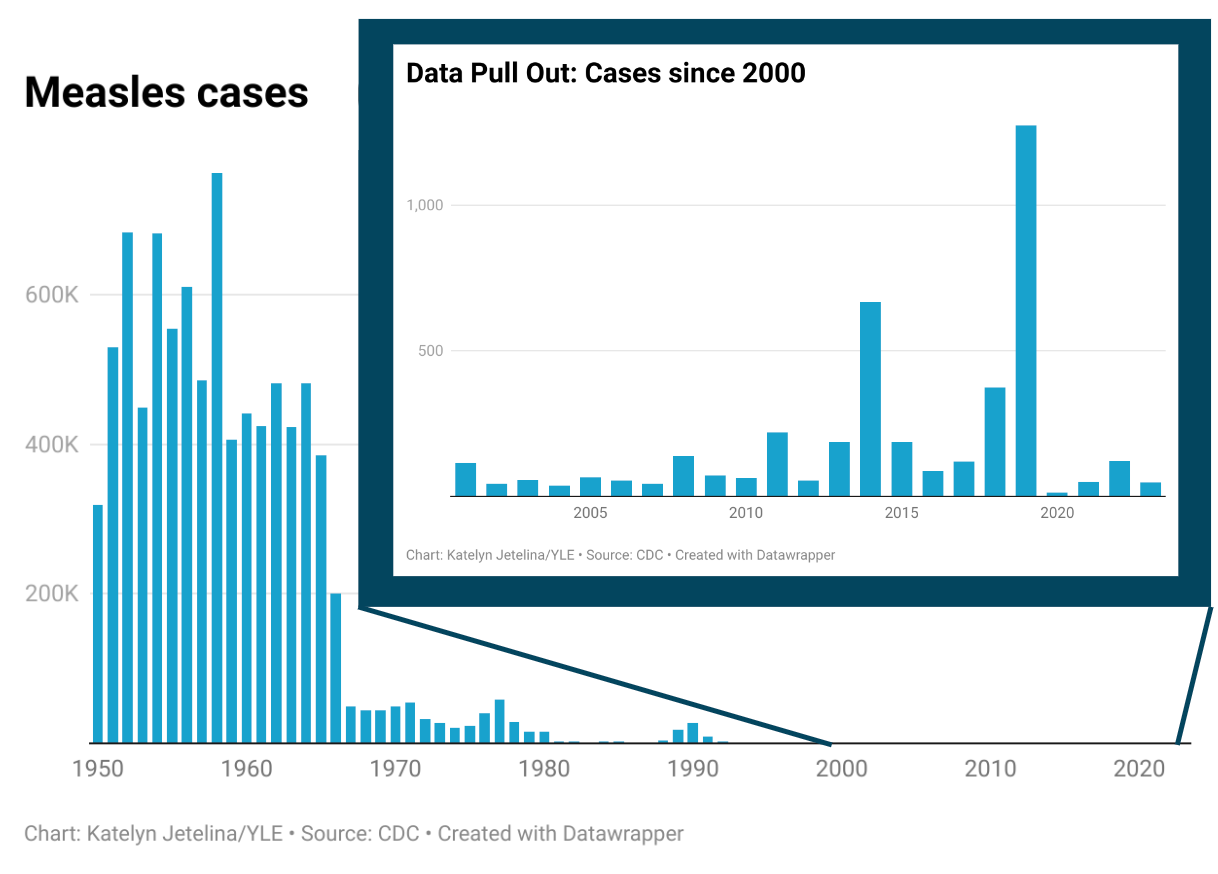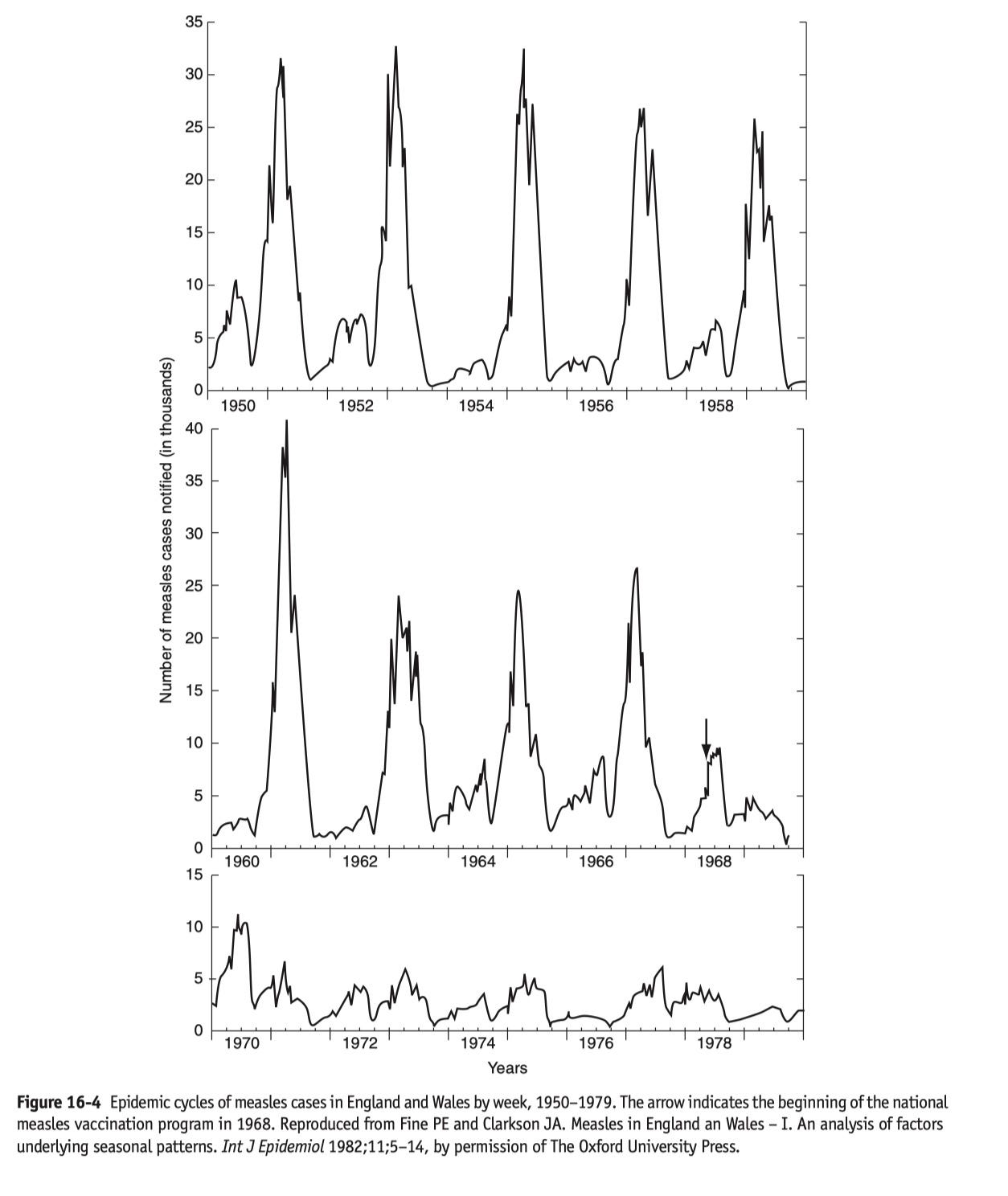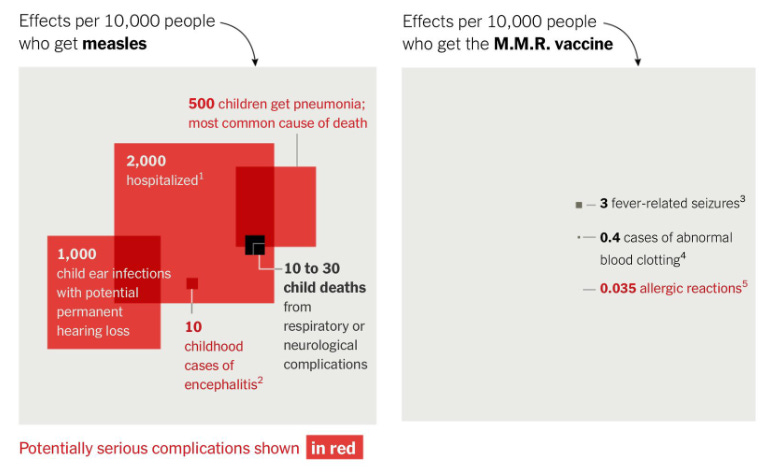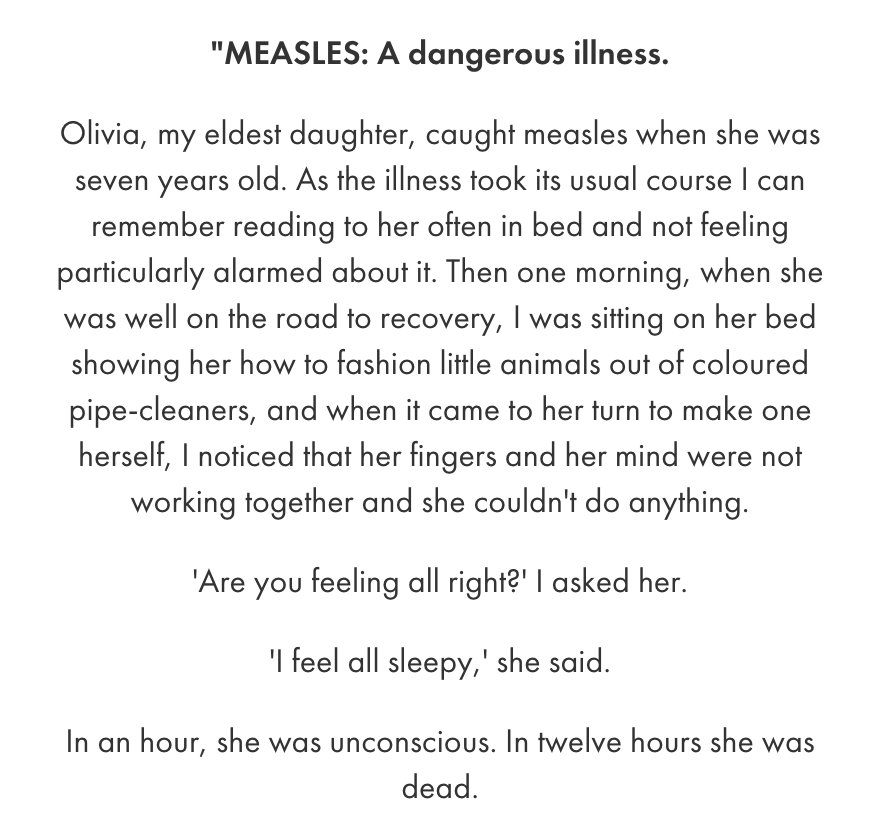Measles, trends, and collective amnesia.
Are cases increasing? What will 2024 look like? What can we do about it?
Yesterday I got a Google News alert: “Measles.” Yes, measles. In the 21st century. At the height of winter. (Measles typically spreads in spring.) What’s going on?
Two active and unrelated measles outbreaks among unvaccinated people: Philadelphia and New Jersey
A Delaware children’s hospital on alert after an unvaccinated patient exposed 30 others
Two DC airports on alert for an unvaccinated, infected international traveler
An explosion of measles cases in the U.K. in the past month (255 cases)
This sure seems like a lot. Is measles increasing?
A measles case here or there is not abnormal. We see them every year. Cases typically come from international travelers, but sometimes locally acquired outbreaks emerge among unvaccinated pockets.
Cases today are still far, far, far below rates in the 1950s and ’60s thanks to vaccines. However, when we zoom into the past 10 years, we see a slow but steady rise. This shouldn’t be a surprise, given the reduction in routine vaccination coverage and the increase in vaccine exemptions.
As you may also notice above, measles has epidemic cycles. It flares up every four to five years—2008, 2011, and 2019. We can also see this pattern during the pre-vaccine era (see below).
It is exactly 5 years since the last flare-up, which suggests this may be a bad year. Of course, the pandemic could throw off patterns, but we aren’t off to a great start.
What is (and is not) a way forward?
Measles is preventable. And, in the PA outbreak, one unvaccinated child went to daycare while infected, defying isolation.
People are disappointed and shocked that fellow parents wouldn’t vaccinate their children. People are angry that their loved ones may get exposed as a result, especially since babies under 12 months old cannot be vaccinated.
I share a lot of the frustration. But I remember what Dr. Sandro Galea said during the pandemic, “We cannot finger-wag our way to a healthier world.”
Is there collective amnesia? Let’s fix it. As generations age, the memory of mid-20th-century diseases like measles fade. This is a blessing and a curse. Some don’t know why this disease is bad or if this vaccine is safe. This is understandable. The onus is on public health—we need to equip trusted messengers to start communicating, as measles is:
The most contagious disease, with an infected person infecting an average of 12-18 others (assuming no immunity in the population). In some cases, a single person has infected hundreds of people.
It’s not “just a fever or a rash.” While most people who get measles will recover, it can harm the body in every way possible. Measles can wipe out a huge fraction of immune memory to other diseases, causing an increase in all-cause deaths.
The risks of infection far outweigh the risks of the vaccine, as shown beautifully by the New York Times below.
Is this a consequence of individualism? Let’s engage. One of the biggest challenges is the rise of individualism, as it goes against public health’s DNA: a collective response for the good of the population. We desperately need to engage with people who find individualism increasingly important. Develop interventions with them.
Is this due to a recent and dramatic decline in trust? Let’s do something about it. Mistakes were made during the pandemic. Misinformation is supercharged by social media. Bad actors, like the disinformation dozen, drive the majority of anti-vax content. Politics are further dividing individual health. Many people talk about these challenges (it’s even the theme of Davos this week!), but I’m getting increasingly frustrated with inaction.
Bottom line
Unfortunately, measles is off to a great start in 2024. We expect trends to increase.
We need to heed the underlying warning. A laissez-faire approach to public health, on both sides, will not work. Harrowing stories like Roald Dahl’s below will creep into the 21st century. We can do better.
Love, YLE
NOTE: If you’re in Philadelphia, the Health Department has added several additional vaccination sites to ensure that children and adults who need the measles, mumps, and rubella vaccine can get vaccinated at no cost. Check for locations here.
A big thanks to Edward Nirenberg for his help pulling a lot of the research integrated above.
“Your Local Epidemiologist (YLE)” is written by Dr. Katelyn Jetelina, M.P.H. Ph.D.—an epidemiologist, wife, and mom of two little girls. During the day, she is a senior scientific consultant to several organizations, including CDC. At night, she writes this newsletter. Her main goal is to “translate” the ever-evolving public health world so that people will be well-equipped to make evidence-based decisions. This newsletter is free, thanks to the generous support of fellow YLE community members. To support this effort, subscribe below:









Individualism is just a polite way of saying selfishness and ignorance. Selfish because you don't care what happens to other people, only yourself. Ignorance because you think you are smarter than those that have studied these diseases and the ways to cure/prevent them.
Katelyn, if you want to really study a troubling epidemic, study the epidemic of ignorance and selfishness that is growing not only in the US but also globally.
I got the measles in 1961 while at boarding school. The nurse laughed, said the spots on my face were just pimples, and refused to look at my forearms. Within a few days dozens of other kids fell ill.
I had a scary home life and insisted on recovering in my dorm. One night I hallucinated--I had to count backwards accurately from 400 or the world would end. Got up, went to the bathroom, threw water on my red-hot face, and couldn't recall which room I lived in! Had to quietly open door after door until I found a room with an empty bed.
The dorm mother finally insisted I return home (I hope the cab driver was immune!). My mother's psychosis abated enough for her to do some mothering, so I lay in bed for a week or so with the blinds closed; reading and TV were prohibited to prevent blindness. She fed me milk toast (which is actually quite tasty).
I probably had no long-lasting effects, since I'm healthy in my late 70s. But the danger is certainly real. I'm always horror-struck when I read about parents refusing to vaccinate their children.